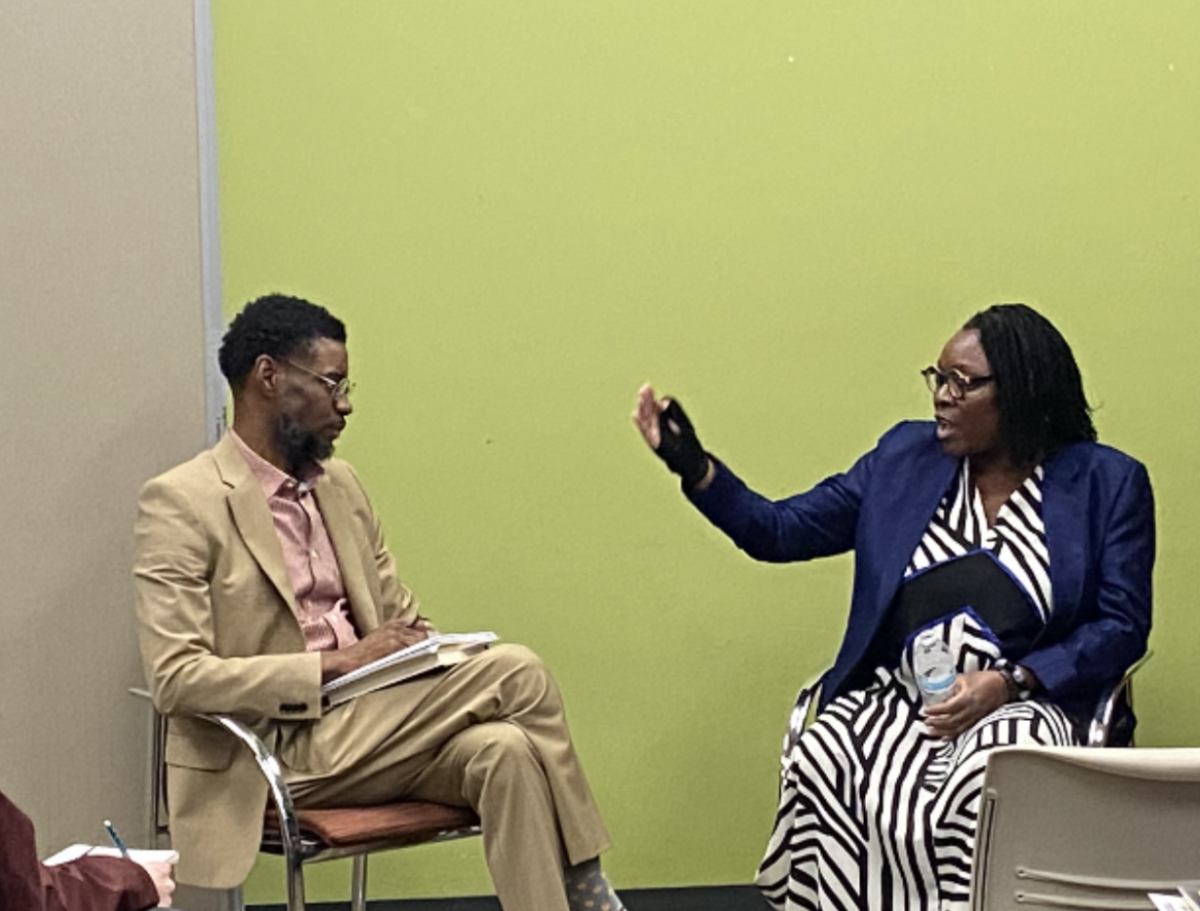The Wisconsin Book Festival, in partnership with Lake City Books, hosted lawyer and scholar Bernadette Atuahene on Feb. 21 to discuss her new work, “Plundered: How Racist Policies Undermine Black Homeownership in America.” Judge Everett Mitchell of Dane County’s Fourth Circuit Court moderated the conversation.
Atuahene said her work studies how “predatory governments” — governments who intentionally or unintentionally raise funds via racist policies — can disproportionately affect homeowners of color. Majority-Black neighborhoods in the U.S. have higher rates of illegal property taxation, and Blacks and Hispanics pay an average of 10-13% more than white individuals on property tax per year, according to Atuahene.
Atuahene also shared that issues such as redlining — where majority-Black neighborhoods are denied financial services — and Block-busting — persuading white homeowners to sell their property in fear of minorities moving into their neighborhoods, therefore reducing the area’s value — contribute to disparities in property quality and taxation.
Atuahene’s said many of these policies are “invisible” and difficult for the general public to notice, therefore attributing blame to “visible” Black homeowners for low neighborhood quality leading many Black homeowners to internalize these narratives of personal responsibility.
Part of Atuahene’s work involves helping homeowners in Detroit — which she referred to as both the “ground zero” for racist homeowning policies and the center of resistance against them — raise funds to pay off their debts.
While taking cases of inequitable taxation to courts is incredibly difficult thanks to procedural issues, there are still active efforts through the Dignity Restoration Project to help homeowners maintain their property and to help those who lost them, Atuahene said.
“[The Dignity Restoration Project is] fighting to protect our intergenerational wealth and our dignity,” Atuahene said.
When approaching issues of social change, Atuahene said she prefers to use the term “racist policy” as opposed to “structural racism” or “systemic racism.” The term is more broadly understandable and forces those who use it to name policies and bring attention to specific racial inequities.
The conversation also involved the nature of academia, as Atuahene said many academics view struggling communities as sources of research and data instead of groups to be helped. Atuahene said that empty notions of neutrality prevent academics from solving issues.
Atuahene said academics should be aware that they cannot approach social issues without some form of bias. It is difficult to keep a professional distance from interviewees while still receiving valuable insight according to Atuahene.
Atuahene and Mitchell discussed the former’s motivation to write “Plundered” in a highly narrative style. Atuahene said legal research often states statistics without showing the lives or consequences involved, and that she hoped to move away from legal articles and toward a more powerful means of communicating her ideas.
“The most powerful tools we have for social change are stories,” Atuahene said.



